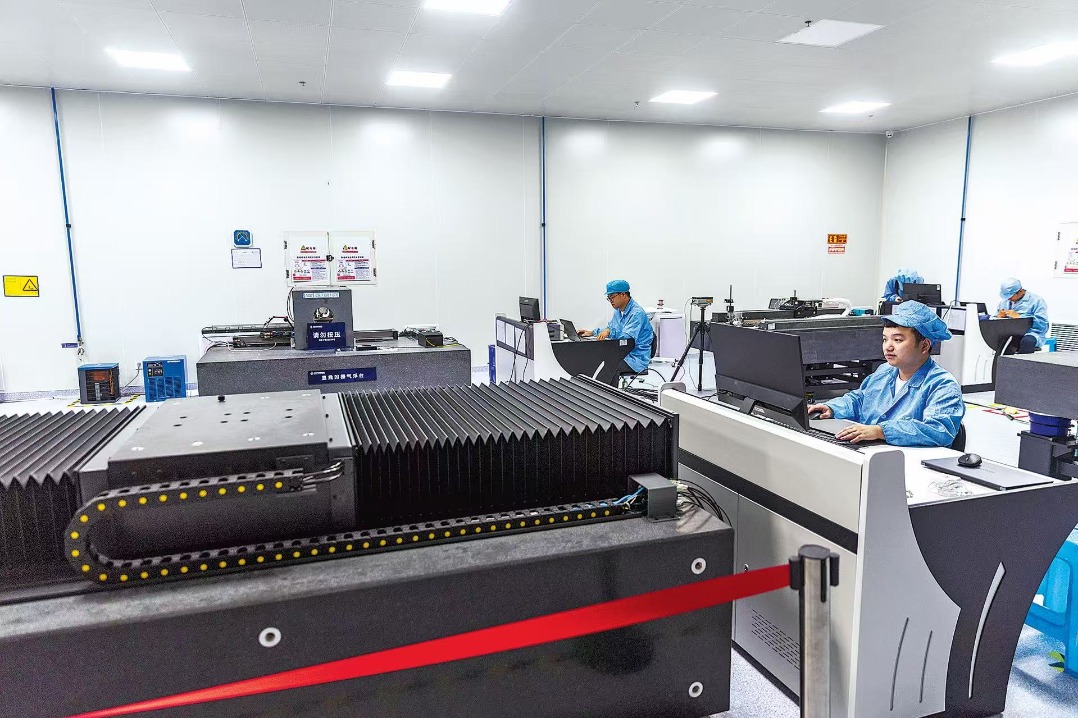JD turning to 5G for edge in logistics sector


E-commerce giant to showcase intelligent technologies at Shanghai park this year
E-commerce giant JD said that its first 5G intelligent logistics demonstration zone in Shanghai will use automated sorting, tracking and inspection, and overall management technologies when it starts operations this year.
Zhe Wenming, the chief architect officer of JD logistics, the logistics arm of the Beijing-based tech heavyweight, said as a new generation of mobile communication technology, 5G plays an important role in managing personnel and vehicles in logistics parks, tracking packages and the process of digitalized production and patrolling of drones and self-driving vehicles.
For instance, 5G technology could calculate routes for cars entering the park and find primary parking spaces for them. The facial-recognition technology is also used to set employee permissions for entering the park, warehouses and other areas.
Through cooperation with major telecom carriers including China Mobile and China Unicom, the logistics park is the first of its kind nationwide in integrating 5G technologies with the logistics industry.
"With the high-speed, large-bandwidth and low-latency capacities of the network, 5G technology is also expected to be used in autonomous driving, intelligent agriculture and drone patrols," Zhe said.
"Moreover, Qiong an New Area will be one of the fasting growing areas in applying 5G as we have carried out robot delivery trials in this area in association with China Mobile."
Zhe said 5G technology will initially be used in the commercial sector rather than the consumer segment, with logistics being a development direction.
"We will also expand the models of 5G intelligent logistics parks to other parks across the nation, and transform unmanned warehouses, with working efficiency doubled, as well as provide solutions for other industries such as manufacturing," Zhe said.
China is expected to become the world's largest 5G market by 2025, accounting for 460 million 5G connections, or 28 percent of the global total, according to a report released by the Global System for Mobile Communications Association, which represents the interests of more than 750 mobile operators worldwide.
It emphasized that China's precommercial and commercial launch footprints will also be among the largest in the world in terms of base stations.
According to the Ministry of Industry and Information Technology, China will continue to push for the integration of 5G technology with the real economy, and accelerate plans to utilize 5G in intelligent transport, industrial internet, healthcare and intelligent manufacturing.
"Internet of vehicles, internet of things, virtual reality devices and smartphones will be the major three application scenarios for 5G technology," said Li Lian, a senior analyst from the China Center for Information Industry and Development, a national IT information service institution.
Li added the market size of 5G will surpass 1 trillion yuan ($149 billion) in the future, with the major investment opportunities falling in infrastructure and terminal application scenarios.




































